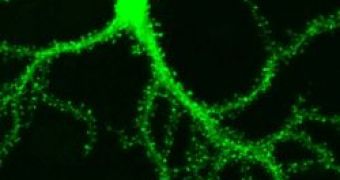A team of researchers has announced today a monumental discovery: adult brain cells do grow. This comes to contradict previous theories.
"Knowing that neurons are able to grow in the adult brain gives us a chance to enhance the process and explore under what conditions, genetic, sensory or other, we can make that happen", said study co-author Elly Nedivi, the Fred and Carole Middleton Assistant Professor of Neurobiology.
This finding means that it may one day be possible to grow new cells to replace ones damaged by disease or spinal cord injury.
While scientists have focused mostly on trying to regenerate the long axons damaged in spinal cord injuries, the new finding suggests targeting a different part of the cell: the dendrite. A dendrite, from the Greek word for tree, is a branched projection of a nerve cell that conducts electrical stimulation to the cell body.
With the help of technology similar to magnetic resonance imaging (MRI), but at a much finer cellular resolution, the researchers were able to stitch together two-dimensional slices to create the first 3-D reconstruction of entire neurons in the adult cortex. Dendritic branch tips were measured over weeks to evaluate physical changes.
In 3-D time-lapse images, the brain cells look like plants sprouting together. Some push out tentative tendrils that grow around or retract from contact with neighboring cells. Dendrite tips that look like the thinnest twigs grow longer. Of several dozen branch tips, sometimes only a handful changed; in all, 14 percent showed structural modifications. Sometimes no change for weeks was followed by a growth spurt. There were incremental changes, some as small as seven microns, the largest being of 90 units.

 14 DAY TRIAL //
14 DAY TRIAL //